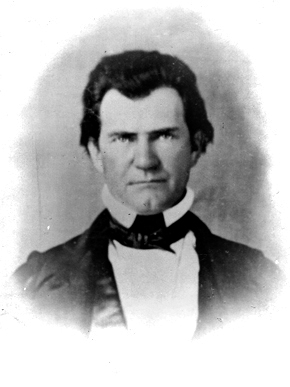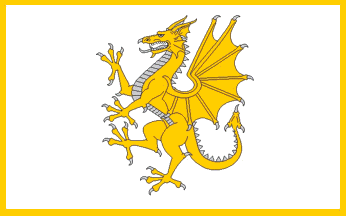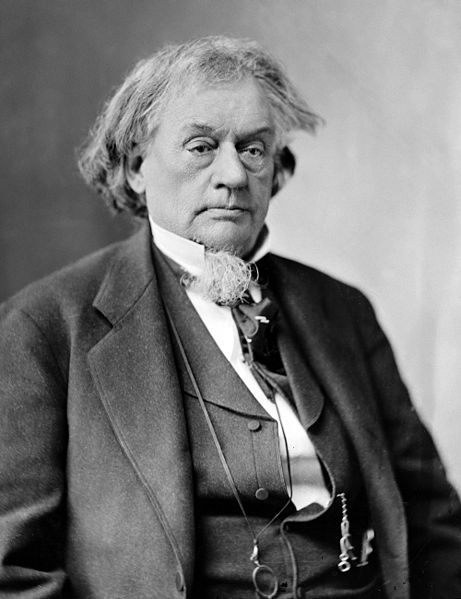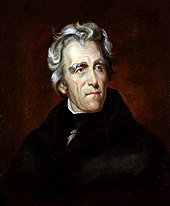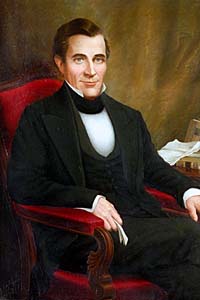
One of the rare Catholic influential families in American politics, perhaps the first to rise to power as well, the Rondelles' over two centuries long story begins with Vincent Rondelle, a minor French nobleman who, after the razing of his and subsequent razing of a Huguenot nobleman's manor in retaliation, left France proper in 1570 to attempt to strike it rich in Quebec as a relatively affluent Siegneur owning land outside of Montreal. His descendants would count among their number one Governor-General of Quebec, several generals successful against and forming ties with the natives, and others who would cement the Rondelles a place in the fur trade of North America, even if a miniscule piece of the lucrative trade as middle men for the natives and French merchants.
This likely raises the question of why the Rondelles are not exclusively of the Quebecois aristocracy, joining the United States in 1841, becoming the state of Canada in the following year. The answer lies in the service of Octavien Rondelle, and his probably more famous son Sebastian in several Anglo-French colonial wars, predominantly the French and Indian War that would see the latter's inheritance of the Rondelle estate seized for meager compensation by the incoming British provincial government at gunpoint as Vicomte Rondelle would state. Incapable of affording passage to France, Rondelle was forced to settle in the Thirteen Colonies, purchasing a small estate with the remaining compensation in Maryland. Becoming a planter who practiced an early form of sharecropping over outright slavery, Sebastian would swear an oath to avenge the disgrace his family suffered by the British. Little did he know he would soon get his chance with the American Revolution beginning.
Rondelle's service in the Revolution is not as glorious as many other families' forefathers was, but nonetheless it was a vital role. Serving as Commissioner to France, Rondelle successfully arranged for French(and by association Spanish) trade and intervention in the Revolution, along with a trade agreement with the Dutch. He would also be present at the signing of the Treaty of Paris. Following the war, Rondelle returned to his plantation, managing to turn it into a moderately successful one that in combination with his son Octavien's newly-minted mercantile operation, would serve as the basis for the Rondelle Navigation Company and the family's fortune to this day. Sebastian Rondelle's crowning achievement however would be serving as the Chief Architect of Concordia, designing several of the governmental buildings with influences learned from his time in France and other sources. He would also serve as a Senator from Maryland at this time, residing first from his personal estate but upon the completion of Concordia, a small estate granted to his family by the government as a payment for his work.
At this time in the 1790s, Rondelle's two sons would also make their mark in history - Octavien, appointed to be Admiral of the Second Continental Navy and Commodore of the U.S. Marine Corps would lead the expedition to the Barbary Coast with Inspector-General von Wolfe as a second in command in the Barbary War, decisively defeating the Corsairs at the Battle of Derne with minimal loss of life on the American side along with razing the citadel of Pasha Karamanli and liberating all the captives present in Tripoli prior. Laurent would take a different path, initially being slated to serve alongside his brother, he would instead seek passage to Italy with a few of his friends and join the Armee du Roi, serving as a officer in the infantry under the Comte d'Artois. At this point, it could be said the Rondelles divided into a French and American branch.
The 'American' branch of the family would remain Maryland politics and the navy until the latter being scrapped by President Eggers as part of disarmament despite any action on part of the Federalists to prevent such a notion, and the former until 1812, where most of the Rondelles would relocate to New Orleans, with Sebastian Rondelle serving as the first governor of the state from 1812-16, passing away in late 1816 in his sleep. The remaining Rondelles in Maryland would inherit the estate, while Octavien moved the young Rondelle Navigation Company to it's present location in New Orleans, purchasing docks and warehouses in New Orleans and Baltimore to use to expand the company. As one of the few naval officers who did not command a "rowboat with guns", Octavien would be appointed Head of the Naval Department and Admiral of the United States Navy once again in 1817, overseeing the reconstruction of the fleet, re-establishment of the Marine Corps, two actions that have some considering him one of the two founders of the U.S. Navy, the other being the first President and Commodore of the Navy during the Revolution, Hammit Poole.
Meanwhile in Europe, Laurent would be present at nearly every major battle of the Napoleonic Wars alongside Louis XVII and the Comte d'Artois. Rising in the ranks from an officer to Marechal of France after several successful actions against Napoleonic French forces(even if they were temporal or had little effect on the battle), Laurent would serve as neutral commander, not as aggressive or bold as his king, nor as overly cautious as Artois. He would marry a emigre noblewoman to present himself more like a French nobleman over a American, being granted the title of Comte after Fontainebleau, already having been granted the now-honorific title of Vicomte Rondelle after leading one of the charges at Borodino. Proceeding to fight under Louis XVII in the Hundred Days, Rondelle would take part in the Chevaliers de la Garde charge against the Napoleonic French. Granted a moderately sized estate outside Marsaille and a seat in the Chamber of Peers. The now Baltimore branch of the Rondelles is far less memorable than the other two, losing the two elder brothers of Emmanuel Rondelle to British Arms during the ill-fated invasion of Canada and the rest of the family doing nothing of note, remaining in Maryland's legislative body as Senators and being planters.
In 1820, Octavien unsuccessfully ran for governorship of New Orleans as a Federalist, the Baltimore branch lost their seat in the House that they earned last election, and in France Laurent arranged marriages for his two eldest sons. The rest of the early 20's would be of little interest, with the RNC expanding their markets in the Gulf of Mexico and further north, opening a small outpost in Montreal that is still open today under the supervision of Octavien's son Alexander, Laurent and his eldest sons taking part in the French intervention in Spain before being appointed Ambassador to the United States several weeks after the campaign's completion.
In 1824, running as one of the first Whigs, Octavien would win the governorship of Louisiana while Emmanuel failed to reclaim his lost seat, and Laurent arrived as Ambassador, spending a fair portion of his time in Louisiana visiting his brother, reigniting fears of a Genet-like ambassador from France again, but those were disproven quickly as the Comte did not visit his relatives until later in the year, introducing himself to the President, speaking to members of Congress and a few other notables, then going to New Orleans for two months after his brother's victory in the election. With him came his son Charles due to his older brother being in the French Army as a Lieutenant in a Cuirassier regiment. However, in 1827, Laurent would resign his commission as Ambassador to return to France as a Marshal to command a portion of the forces sent into Algeria, defeating a portion of the Corsair forces in battle outside Oran, ironically fulfilling the initial reason he was to be sent overseas roughly three decades ago. He had attempted to convince his brother to come with him to fight the corsairs, but due to his position and preparing to support a Le Loutre candidate in the 1828 election, he declined. In 1828, Octavien won a seat in the Senate, his son Alexander in the House, and Emmanuel failed yet again to reclaim his seat, but as a consolation, won a seat in the Maryland state government.
Having returned to his manor in southern France to live in relative peace until five BTS agents, his son and daughter amongst them arrive with word of suspicion of revolt in Paris, Laurent would take command of several local regiments and rush to Paris, arriving shortly after the initial fighting began of the Three Days. While uninvolved in the more notable fighting, what he is known for is an incident revolving around musicians. Knowing he was advancing on a Bonapartist-held section of the city, Rondelle ordered several musicians in his command to play La Victoire est à nous, the march of the Grande Armee of Napoleon I to mock their cause and unintentionally sow confusion in the ranks, resulting in a near friendly fire incident until the order to fire on the Bonapartists who fell for the ruse. Laurent's four eldest children would be involved in the fighting as well, Sebastian and Charles as officers in the cavalry and artillery respectively, while Felicia and Raphael went around either scouting for Royalist forces, sniping enemy officers, or chasing down any attempting escapees after the battle, similar to what the rest of the Bureau was doing post-Three Days.
In 1832's election, the Rondelles successfully held their positions in government, Emmanuel failed(again), Felicia Rondelle was assigned to the American cell of the BTS on a rumor Charles-Napoleon may be hiding in the country, likely due to the fact the Rondelles are from America. She and two other agents would be responsible for the final attempt on Charles-Napoleon's life with poisoned tea, while serving a secondary role by scouting the route for the carriage bombing attempt. Her brothers would serve under their father in the intervention for the Carlist cause in 1833, of which would be Laurent's final command in the French army. After several incidents involving Mexican soldiers and several RNC employees in Galveston, Octavien's son Maximilian would temporarily resign his commission in the U.S. Marine Corps to fight in the Texan Revolution as a mercenary under the hired Inspector-General of the Texan Army, Isidore von Wolfe while his father sent some covert support to the Texan cause as revenge for the Mexicans harassing his company's shipments purely because they are Americans.
In 1841, the Quebec branch of the Rondelles would be founded as Laurent, now officially on reserve duty in the French Army and a member of the Chamber of Peers while unofficially retired, officially would retire and pass his titles onto his eldest son Sebastian with the consent of Louis XVII to return to his original homeland with Charles and Isabella, while Raphael and Sebastian remained in France upon receiving word the United States had obtained Canada, specifically Quebec. His daughter in the United States quickly moved northwards to first find the ancestral Rondelle estate by breaking into the Provincial Archives of the government while it was still British, then forcefully chasing off the descendants of the man the estate had been sold to in 1766, killing at least two of them in the process before her father's arrival and purchase of the manor after the owners put it up for relatively cheap, eager to leave the country for England after the ruling it was a bandit attack was given. Laurent and his children have spent the last four years becoming part of the upper class society in the area, with Charles successfully winning a seat in Congress from Quebec as a Federalist. In 1844, after the death of the last ambassador due to natural causes at the age of 81, Sebastian Rondelle would be appointed ambassador to the United States, and while privately complaining his embassy wasn't in Montreal or New Orleans, he set out for his new mission that he presently holds.
Further south, the Baltimore Rondelles have done little of note in comparison to their kin, only notable thing they have done in the past twenty-five years is probably Emmanuel's dismal political career and dumping animal waste on a nativist mob before chasing them off with various armaments(It is worth noting a nativist mob did attempt to attack the New Orleans Rondelles, but after some ill-chosen words insulting a certain monarch and country, was quickly scattered by some Creole militiamen, several RNC-hired mercenaries, two women, and three men). In New Orleans, the Rondelles remain a moderately influential Whig family whose fortune is made from the RNC, which has operations across the Atlantic seaboard of the U.S. and in the Gulf of Mexico, although the majority of these operations are in the Gulf for the time being. Alexander has succeeded his father as head of the Company and Senator in Congress, winning a term handily in 1844 while his brother has transferred to the Navy in hopes of becoming an admiral to equal or surpass his father's achievements in the navy. | Family members |
Octavien Rondelle (b. May 11th, 1768) - Former U.S. Admiral(1795-1807, 1814-1821) and Commodore(Barbary War), Governor of Louisiana, Senator. Spends most of his time on his family's estate in New Orleans.
Laurent Rondelle (b. October 6th, 1771) -Veteran of the Napoleonic Wars, Marshal of France(1807-1838), Orde du Lys recipient. Like his brother, usually is found on his family's estate, the reclaimed ancestral estate of the Rondelles in Sorel, outside of Montreal.
Emmanuel Rondelle (b. June 8th, 1792) - The head of the Baltimore Rondelles and a unsuccessful politician, only winning election to legislative bodies twice and losing them in the next election.
Charles Rondelle (b. July 14th, 1798) - Head of the Quebec/Canada branch of the family, a former French military officer and diplomat. Seeks election as Governor of Canada or a seat in Congress(if he is not already a Senator)
Alexander Rondelle (b. January 11th, 1800) - Head of the New Orleans branch, head of the RNC, a Senator from Louisiana and former officer in the Navy.
Maximilian Rondelle (b. September 1st, 1802) - A officer in the U.S. Marine Corps, formerly a mercenary who fought in Texas along with von Wolfe. May seek transfer to the Navy with the aspiration to become an Admiral.
Felicia Rondelle (b. November 7th, 1806) - Charles' younger sister and a officer in the BTS.
Gaston Rondelle (b. April 19th, 1811) - Emmanuel's eldest son. Seeks to get his family out of the shadow of the other two branches through some course of action.
Jean-Phillipe Rondelle (b. March 12th, 1814) - Emmanuel's second son.
Outside of the U.S. -
Sebastian Rondelle, 2e Comte Rondelle, 17e Vicomte d'Sorel (b. December 18th, 1794) - Member of the Chamber of Peers and current French Ambassador to the United States. Formerly a Colonel in the French Army.
Raphael Rondelle (b.August 3rd, 1808) - A agent of the BTS, formerly under his sister, now part of the Marsailles section of the BTS.
Still a wip.
|
|









